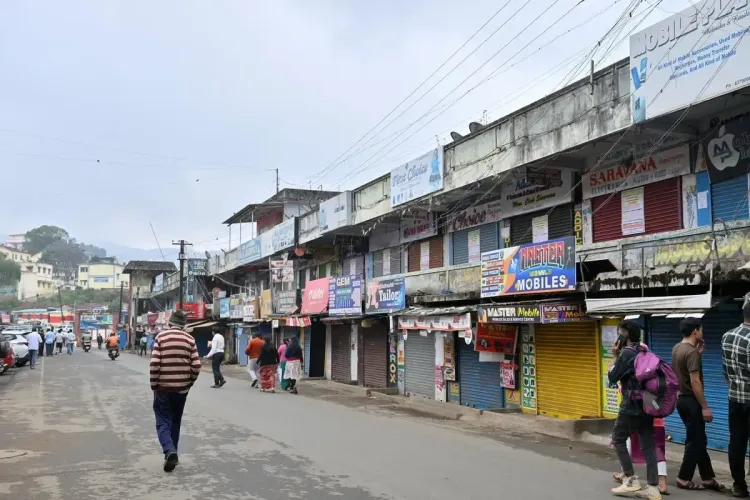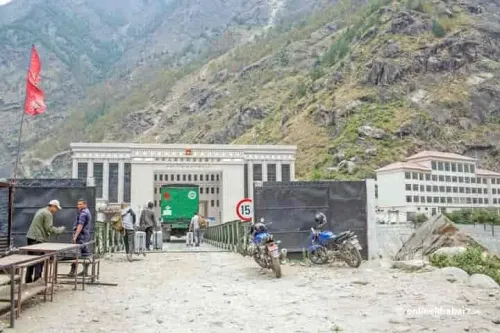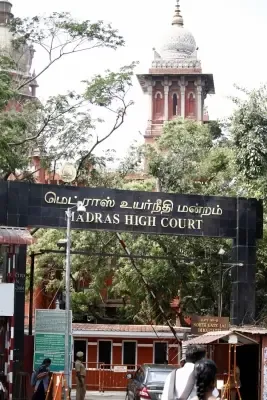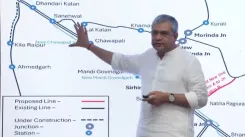TN: Local Businesses in Nilgiris Protest E-Pass Regulation

Synopsis
Key Takeaways
- A vast majority of businesses in Nilgiris observed a bandh.
- The protest was against a new e-pass system for tourists.
- Revenue losses of 15-40% reported in tourism sectors.
- New vehicle entry limits could further impact local livelihoods.
- Confusion remains over vehicle allocation limits.
Chennai, April 2 (NationPress) A significant number of shops and business establishments throughout the Nilgiris district in Tamil Nadu remained closed on Wednesday, following a call for a district-wide bandh by merchant associations.
The demonstration was a reaction to a recent order from the Madras High Court that limits tourist access through a new e-pass system.
Owners of hotels and restaurants joined traders in opposing this order, arguing that the e-pass system, which was introduced last year, had already led to revenue losses ranging from 15 to 40 percent in sectors reliant on tourism.
They voiced concerns that the newly implemented vehicle entry cap—restricting the influx to 6,000 vehicles on weekdays and 8,000 on weekends—would further jeopardize livelihoods and severely impact the local economy.
According to police reports, approximately 90 percent of all businesses in the Nilgiris, including areas like Udhagamandalam, Coonoor, Kotagiri, and Gudalur, participated in the bandh.
While these towns appeared quieter than usual, tourism remained largely unaffected, with popular attractions such as the Government Botanical Garden still attracting large crowds. However, numerous tourists encountered difficulties since most restaurants were closed.
A considerable number of visitors flocked to the government-operated Amma Unavagam near the Ooty bus stand for meals. Despite the bandh, hotels and lodges continued their operations. This bandh was led by the Nilgiris District Traders Association in protest against the Madras High Court directive, which took effect on April 1 and will last until June 30.
According to the order, all vehicles entering the Nilgiris—except those for medical emergencies, government transport, goods delivery, and vehicles registered within the district—are required to obtain an e-pass.
The court also stressed the importance of prioritizing vehicles that use sustainable and non-polluting fuels during the e-pass allocation process. Dindigul Collector S. Saravanan mentioned that a meeting led by the Chief Secretary was recently conducted to finalize the implementation of this system.
He added that last year, approximately 15 percent of issued e-passes were canceled, preventing many legitimate tourists from visiting the hill station.
To mitigate such issues this year, the administration intends to maintain a buffer stock of e-passes to accommodate potential cancellations.
Officials have also outlined additional measures, such as monitoring bulk bookings and establishing e-pass checkpoints at the foothills to alleviate traffic congestion in high-density areas like Silver Cascade.
They acknowledged that some glitches may arise during the initial 15 days but assured that these would be promptly resolved.
Despite these assurances, confusion remains regarding how the limits of 6,000 to 8,000 vehicles will be allocated among private buses, mini-buses, vans, cars, and two-wheelers. The administration has yet to provide clear guidelines on this allocation.
The High Court has also instructed authorities to develop parking zones at the foothills, enabling tourists to leave their private vehicles and utilize electric transport to reach major attractions. However, it is still uncertain whether these parking facilities are operational.
Meanwhile, similar tensions are brewing in Kodaikanal, where a vehicle limit of 4,000 on weekdays and 6,000 on weekends has faced backlash from local stakeholders. They argue that the cap does not account for the numerous unregistered accommodations operating alongside approximately 7,000 licensed hotels, cottages, and homestays in the region.









